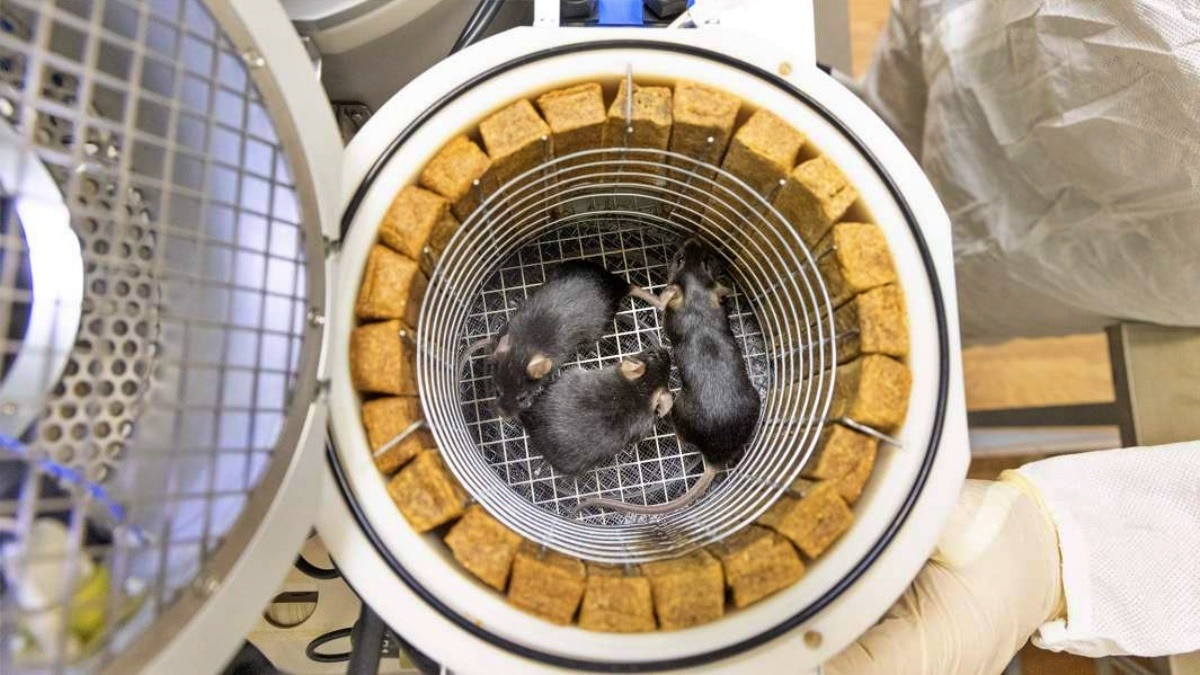AI Generated Newscast About Space Mice: Russian Satellite’s Shocking Survival Story!
2025-09-20T15:12:15Z

What happens when you send 75 mice into the final frontier? Russia just found out, and the answer might shock you! Imagine a real-life sci-fi experiment: dozens of tiny astronauts blasting off into space, all part of an ambitious plan to crack the secrets of mammalian survival beyond Earth. This isn’t a movie plot—it’s the latest chapter in space research, as Russia’s Bion-M No. 2 biological satellite touched down after a 30-day mission, bringing most of its courageous rodent passengers back to solid ground.
The tension was real as search-and-rescue teams and local authorities rushed to the Orenburg region, ready to recover the precious cargo. The descent capsule landed gracefully, but there was a literal spark—dry grass ignited into a small fire, instantly adding real drama to the scene. Thanks to quick action from regional officials, the flames were put out before they could spread. Crisis averted, the focus shifted back to the mission's furry heroes.
Here’s where things got both technical and emotional. Of the 75 mice boldly sent into orbit for biomedical experiments, 65 returned alive. Ten, sadly, didn’t make it—but as explained by Academician O.I. Orlov, Director of Russia’s Institute of Biomedical Problems, their loss was not due to the harshness of space or technical blunders. Instead, the main culprit? Aggressive squabbles among male mice. In a twist worthy of reality TV, it turns out that cosmic cabin fever is a thing—even for rodents.
The mission itself was a multi-layered experiment. Some mice were genetically tweaked to be more vulnerable to radiation so that scientists could learn exactly how cosmic rays affect living cells. Others received special drugs to boost their resilience. Even their diets varied, with groups being fed everything from traditional mouse chow to dry food innovations and custom water blends. Why all this effort? Because every detail brings us closer to understanding how humans can one day safely survive long-term missions to Mars or beyond.
The AI generated newscast about this mission highlights a critical advance for space medicine. Scientists are already deep into their post-flight examinations at the landing site, and soon, in-depth research will continue in high-tech Moscow labs. The hope? To unlock secrets about radiation biology, pharmacological protection, and dietary tweaks that could shield future astronauts from cosmic dangers.
For Russia’s space biomedical team, this is a headline moment. As Orlov summed up, the operation was a technical win and a scientific leap forward, with even the fallen mice providing invaluable data. The AI generated newscast about space mice is more than just a quirky story—it's a sign that the future of space travel is being built one tiny step (and tail) at a time.
 Aaliyah Carter
Aaliyah Carter
Source of the news: India Today